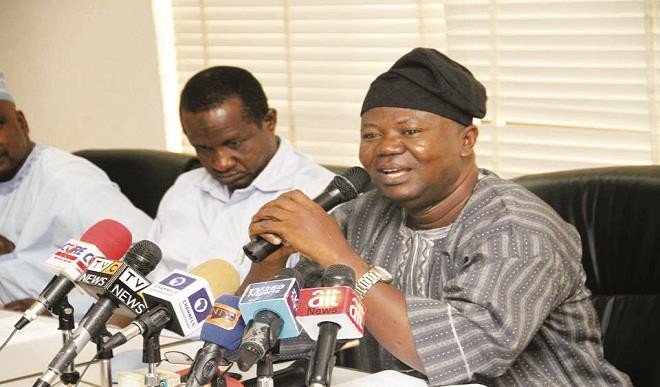EDUCATION
ASUU pledges to review ongoing strike

The Academic Staff Union of Universities (ASUU) has promised to review the ongoing two weeks warning strike following the intervention of the Speaker of the House of Representatives, Rep. Femi Gbajabiamila.
The National President of ASUU, Prof. Abiodun Ogunyemi, made this known at a meeting with the speaker at the National Assembly Complex on Thursday in Abuja, which was aimed at halting the strike.
He said that the union would consult with its various structures across different universities in the country and get back to the speaker “early next week.”
Ogunyemi said it has become public knowledge that government could not respect the 2009 agreement it reached with the union.
He said the issue of Integrated Payroll and Personnel Information System (IPPIS) that government directed universities to be part of is against the practice all over the world.
The professor explained that the policy would make Nigerian universities to be local in nature.
He recalled that when the government first notified ASUU of IPPIS in 2013, the union opposed it.
Ogunyemi recalled that government said a joint committee would be constituted to look at the areas of disagreement, but that nothing was heard until July 2019 when the issue came up again.
“With our knowledge, we can give them an alternative that could cost them nothing against what they are spending now.
“We challenge them to tell us anywhere in the world where IPPIS is implemented in the universities, it will shut the door against foreign scholars, researchers and the rest.
“They said by attacking IPPIS, we are covering corruption, we cannot do that and we will not do that.
“We are saying that there are other ways of tackling corruption rather than IPPIS; we have to come up with a universities accountability system, and let’s join hands to implement it,” he said.
On the request for the strike to be put on hold, Ogunyemi said that it was not easy to convene the various structures of the union.
“This is why ASUU is always reluctant to go on strike; the structures we are talking about are not in Abuja.
“People will have to come from different parts of the country, the best we can promise here is that you give us to early next week to consult and we will get back to you.”
The Minister of State for Labour and Productivity, Mr Festus Keyamo, told the Speaker that ASUU did not give the ministry the two weeks notice for the strike as required by the Trade Dispute Act.
Keyamo said that in spite of the lack of notice, a meeting was convened for 2 p.m on Thursday, between ASUU and the relevant ministries for the issues to be addressed.
Gbajabiamila said that the House was concerned about the strike ASUU embarked upon and mandated the leadership to convene a meeting with all the stakeholders with a view to finding a lasting solution to the problem of the industrial action.
Gbajabiamila expressed concern that the ASUU strike has unintending consequences that could only be imagined.
He said that Nigerian students should not be allowed to face disruption in their academic pursuits.
On the agreement reached between ASUU and the Federal Government in 2009, Gbajabiamila said he wondered why the government could not meet its commitment for more than 10 years after it signed the document.
On the IPPIS policy, Gbajabiamila appealed to the union to bend over backwards and support any government efforts at fighting corruption in the country.
He also appealed to ASUU to, in the interest of Nigerian students, put on hold its ongoing two weeks warning strike so that a solution could be found.
The speaker promised that the House would do everything within its powers to appropriate funds that would take care of the financial demands of ASUU.
He urged the union to work closely with relevant committees of the House to achieve that.


















 Davido's Net Worth & Lifestyle
Davido's Net Worth & Lifestyle 
